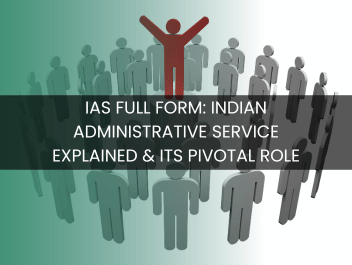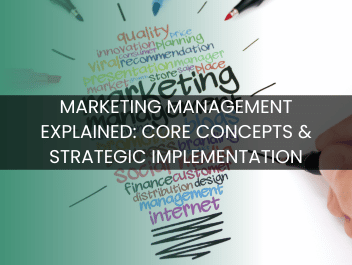
First-Time Manager Interview: Crucial Questions and Strategies for Success
Stepping into a managerial role for the first time is both exciting and challenging, demanding not just knowledge but the ability to effectively lead and inspire a team. Many first-time managers face the daunting task of translating their individual achievements into leadership success while tackling first time manager interview questions and answers. In understanding the transition from a contributor to a leader, grasping the differences in responsibilities and adopting a leadership mindset are critical.
Successful management hinges on articulating your management style by identifying your leadership approach and clearly communicating your vision. Handling conflict and team dynamics with hiring manager interview questions requires strategies for conflict resolution and building collaborative teams. In this journey, interview questions for managers with answers often emphasize the ability to motivate and inspire, challenging you to develop techniques that foster team motivation and a positive work environment.
Mastering the intricacies of a managerial position involves setting and communicating goals effectively, as well as honing problem-solving and decision-making skills under pressure. This article delves into pivotal interview questions for manager position—covering everything from providing constructive feedback and encouraging continuous improvement, to utilizing structured interview techniques like the STAR method and conducting thorough company research—arming you with the strategies for a successful first-time manager interview.
Table of Content
- 1. Understanding Leadership vs. Individual Contributor Roles
- 2. Differences in Responsibilities
- 3. Adjusting to a Leadership Mindset
- 4. Articulating Your Management Style
- 5. Identifying Your Leadership Approach
- 6. Communicating Your Vision
- 7. Handling Conflict and Team Dynamics
- 8. Strategies for Conflict Resolution
- 9. Building Collaborative Teams
- 10. Motivating and Inspiring Teams
- 11. Techniques to Encourage Team Motivation
- 12. Creating a Positive Work Environment
- 13. Setting and Communicating Goals
- 14. Developing Clear and Achievable Objectives
- 15. Communicating Goals Effectively
- 16. Providing Constructive Feedback
- 17. Techniques for Delivering Feedback
- 18. Encouraging Continuous Improvement
- 19. Problem-Solving and Decision-Making Skills
- 20. Approaches to Complex Situations
- 21. Making Informed Decisions
- 22. Communication Skills
- 23. Presenting Complex Information Clearly
- 24. Active Listening and Engagement
- 25. Utilizing Structured Interview Techniques
- 26. Understanding the STAR Method
- 27. Crafting Answers Using STAR
- 28. Conducting Company Research
- 29. Understanding the Company Culture
Understanding Leadership vs. Individual Contributor Roles
In the professional world, transitioning from an individual contributor role to a leadership position is a significant step. Both roles are essential, yet they require distinct skills and mindsets. An individual contributor typically focuses on personal performance and expertise in specific tasks. Meanwhile, a leader oversees the efforts of a team, guiding them toward achieving common goals. Understanding these differences is crucial for anyone aspiring to take on a managerial role.
Leaders need to evolve their perspectives to align with broader business objectives. Their main responsibilities include motivating team members, setting career goals, and aligning personal growth with company values. By recognizing the unique challenges and opportunities each role presents, individuals can better prepare for their career advancement.
Differences in Responsibilities
One of the primary differences between individual contributors and leaders lies in their responsibilities. Individual contributors excel in specific tasks, often demonstrating depth in their technical expertise. They thrive on meeting personal milestones and contributing directly to projects.
Conversely, managers carry the weight of multiple responsibilities that extend beyond personal achievements. They are responsible for the team's output and must ensure team members are motivated and productive. They must possess effective communication skills to clearly articulate company goals and core values.
Management styles vary, but success in a leadership role hinges on soft skills and emotional intelligence. Leaders must adeptly handle team dynamics, facilitate team meetings, and navigate difficult situations. Their role is pivotal in shaping the company culture and fostering a collaborative environment.
Adjusting to a Leadership Mindset
Transitioning to a managerial role requires adopting a new mindset. Aspiring managers must shift focus from personal accomplishments to team successes. This adjustment demands a reevaluation of priorities, with an emphasis on nurturing team members' growth.
A leadership mindset involves seeing real-life examples of collaborative success, which requires honing communication skills and the ability to build trust. Managers should embrace a leadership style that emphasizes empathy and inclusivity, making them effective in managing diverse teams.
Prospective leaders should assess their management skills and gain insights from experienced managers. By leveraging feedback and continually improving, they can enhance their leadership potential. Transforming into a leader is not just about acquiring new responsibilities; it is about redefining how one perceives and influences success within a team and the broader organization.
Articulating Your Management Style
As a first-time manager, it's crucial to clearly understand and articulate your management style. Your approach to managing a team significantly impacts productivity, morale, and overall success. Job interviews for management positions often include hiring manager interview questions that aim to uncover your management style. Your ability to effectively communicate your preferred style can give hiring managers a glimpse into what your future management role might look like. Understanding and conveying your management style not only helps in the interview process but also guides your career goals and aligns with the company values and culture.
Identifying Your Leadership Approach
Your leadership approach is the foundation of your management style. It defines how you inspire, guide, and support your team. To identify your leadership style, reflect on previous roles and experiences. Consider how you have handled difficult situations and interacted with team members. Do you prefer a hands-on approach, or do you trust your team to take initiative? Recognizing your core values and how they align with your leadership style is vital. Hiring manager interview questions will often probe how your leadership approach will fit into the company culture.
Reflect on real-life examples where you effectively led a team or achieved company goals. Use the STAR method — Situation, Task, Action, Result — to frame these experiences. In interviews, these responses showcase your leadership skills and emotional intelligence. Make sure your answers to interview questions for managers with answers demonstrate your understanding of different management styles and how you adapt them based on context and team dynamics.
Communicating Your Vision
Communicating your vision as a manager is key to aligning your team with the company goals. A clear and compelling vision motivates your team and helps you make decisions that echo company values. During job interviews, hiring managers will often ask interview questions for manager position that assess your ability to communicate effectively. Your communication style should be confident yet flexible, fostering an environment where team meetings are productive and inclusive.
Developing soft skills is critical to convey your vision well. Being a team player who encourages open communication can significantly enhance team dynamics. Prepare to answer management interview questions by focusing on how your vision aligns with the overall objectives of the company. Highlight your communication skills and your ability to be a linchpin in achieving career goals. Ultimately, demonstrating effective communication of your vision assures hiring managers that you are prepared to excel in a managerial role.
Handling Conflict and Team Dynamics
Navigating conflict and fostering team dynamics are crucial aspects of any managerial role. Effective management skills are necessary for addressing challenges and ensuring a harmonious work environment. As a first-time manager, understanding how to handle conflict and improve team dynamics can enhance your leadership style and influence. In the interview process, you may face specific questions to assess these capabilities. Mastering first time manager interview questions and answers, especially those related to conflict resolution and team building, will prepare you for real-life examples where such skills are indispensable.
Strategies for Conflict Resolution
Successful conflict resolution strategies are part of key management styles that hiring managers consider during interviews. Management interview questions may probe your approach to resolving conflicts in a team. Providing insightful answers reflects your emotional intelligence and leadership skills. Common interview questions might include scenarios like dealing with difficult situations between team players. Preparing for interview questions for manager position requires knowing strategies like active listening, open communication, and diplomacy. Addressing conflicts early and in a supportive manner is often the best approach. Demonstrate your ability to maintain company culture and core values by prioritizing amicable resolutions that align with company goals.
Building Collaborative Teams
Building collaborative teams is essential for fulfilling management responsibilities and achieving career goals. First time manager interview questions and answers often focus on your ability to create a cohesive team environment. Experienced managers are typically queried on how they foster collaboration among diverse team members with different viewpoints. Understanding interview questions for managers with answers about team building will showcase your strategic thinking. Highlight instances where you’ve facilitated team meetings that encouraged open dialogue and innovative problem-solving. Communication style is critical; it should be inclusive and supportive. Creating a shared vision helps align individual goals with organizational objectives, fostering a sense of unity and purpose.
Motivating and Inspiring Teams
Motivating and inspiring teams is a key responsibility for any leader in a management position. Effective leaders understand that a motivated team is more productive and engaged. By recognizing the different management styles and leadership skills needed, managers can foster an environment that promotes enthusiasm and commitment toward company goals. Understanding the diverse needs of team members and employing strategies that boost morale can significantly enhance team performance.
Techniques to Encourage Team Motivation
Encouraging team motivation requires a blend of strategies tailored to the unique dynamics of your team. One effective technique is recognizing individual achievements, which can validate employees' efforts and boost their morale. Regular team meetings allow managers to communicate company goals clearly, providing direction and purpose. Utilizing the STAR method—Situation, Task, Action, and Result—can offer structured solutions to challenges and clarify expectations. Additionally, setting realistic career goals helps team members see a path for advancement and growth, aligning their personal aspirations with company values.
Creating a Positive Work Environment
Creating a positive work environment is vital for sustaining team motivation and high performance. A supportive management role involves exhibiting leadership skills that prioritize open communication. By fostering a culture of respect and emotional intelligence, managers can create a space where team members feel valued. Understanding core values and integrating them into daily activities reinforces a sense of belonging. Encouraging a leadership style that welcomes feedback and promotes a collaborative company culture can energize teams and enhance the workplace experience. A positive environment not only elevates team spirit but also contributes to the company's long-term success.
Setting and Communicating Goals
Setting and communicating goals is a vital skill for any manager. A clearly defined goal can motivate a team, streamline projects, and contribute to a company's success. This process involves identifying the core objectives of a project and ensuring every team member understands their role in achieving these goals. Managers must not only set goals but convey them in a way that aligns with company values and supports team dynamics. Effective communication ensures not only clarity but also a shared sense of purpose and unity within the team. Let's explore how to develop clear objectives and communicate them effectively.
Developing Clear and Achievable Objectives
Developing clear and achievable objectives begins with understanding the overall company goals. As a manager, it’s your responsibility to break down these overarching goals into smaller, actionable tasks. Start by identifying what success looks like for your project or initiative and determine the necessary steps to achieve it.
In doing so, ensure that each objective is specific, measurable, achievable, relevant, and time-bound (SMART). This helps create a clear roadmap for your team. When setting these objectives, consider the resources available and any potential challenges you might face. Adjust the objectives as needed to ensure they remain realistic under current conditions. Remember, clear objectives not only guide action but also provide a framework for evaluating progress and success.
Communicating Goals Effectively
Once objectives are set, the next crucial step is to communicate them effectively. This involves using clear and simple language that all team members can understand. Avoid jargon and tailor your communication style to suit the different members of your team. Effective communication also means being open to feedback and questions, enhancing collaboration and ensuring everyone is on the same page.
Regular team meetings serve as an excellent platform to articulate these objectives, realign as needed, and motivate the team. Use these opportunities to share not just the what and how, but also the why. Understanding the purpose behind their tasks fosters a sense of ownership and accountability. Encourage team members to share their thoughts and ideas, creating a supportive environment that values active participation. By consistently engaging with your team and adapting your communication approach, you can effectively align objectives with individual and team efforts toward achieving desired outcomes.
Providing Constructive Feedback
Providing constructive feedback is a vital skill for any manager. This process helps individuals and teams improve their performance, align with company goals, and foster a positive workplace culture. As a first-time manager, knowing the right interview questions and answers about giving feedback can significantly enhance your leadership skills. It’s essential to incorporate a structured approach that not only identifies areas of improvement but also acknowledges achievements. Constructive feedback should motivate employees to grow while reinforcing their core values. In this section, we will explore techniques for delivering feedback and discuss methods for encouraging continuous improvement within your team.
Techniques for Delivering Feedback
Effective feedback delivery requires both tact and clarity. Understanding the best hiring manager interview questions can aid in developing these skills. Start by preparing for the feedback session; set a clear objective and gather relevant information on the individual’s performance. During the feedback session, be direct but empathetic, focusing on specific behaviors rather than making personal criticisms. Employ the STAR method: describe the Situation, explain the Task, detail the Action taken, and discuss the Result. This structured framework helps in maintaining a balanced conversation.
Another critical aspect of delivering feedback is active listening. Allow employees to express their point of view, which demonstrates respect and openness. Approach each session with a mindset of collaboration rather than confrontation. Finally, offer practical suggestions for improvement and agree on actionable steps together. This promotes a sense of shared ownership and motivation to achieve set goals.
Encouraging Continuous Improvement
Continuous improvement is an ongoing effort to enhance team performance and efficiency. Managers can use this concept to inspire their teams towards consistent growth. Start by setting clear, achievable career goals alongside your team members. Encourage them to identify and pursue areas where they wish to develop. Regular team meetings can serve as a forum for discussing progress and addressing any challenges faced.
Adopt a leadership style that values open communication and transparency. This approach fosters a supportive environment where team members feel comfortable sharing real-life examples of successes and failures. By focusing on emotional intelligence, managers can better understand their team’s needs and tailor development opportunities accordingly. Recognizing achievements, no matter how small, can boost morale and drive further improvement.
Implementing a culture of feedback is also crucial. Encourage employees to seek and give feedback, promoting a continuous loop of learning and adaptation. By aligning team efforts with company values and long-term goals, managers can ensure that improvements are strategic and impactful. Continuous coaching and mentoring further enhance this process, enabling teams to thrive and achieve excellence in their respective fields.
Problem-Solving and Decision-Making Skills
Navigating the waters of a management role requires a unique blend of problem-solving and decision-making skills. As a first-time manager, you will face various challenges that test your ability to think critically and make informed decisions. Understanding how to approach complex situations can greatly enhance your effectiveness in a management position. In this article, we will explore key strategies that highlight communication style, emotional intelligence, and core values in problem-solving. These skills are vital in fostering a positive company culture and aligning with company goals.
Approaches to Complex Situations
First-time managers often encounter tricky scenarios that require astute judgment. Comprehending these situations is key to demonstrating leadership skills. When approaching complex situations, it's vital to stay calm and collected. Begin by identifying the core issue and gathering all necessary information. Use active listening to understand all perspectives involved. This insight will guide you in formulating a clear plan of action.
It's beneficial to apply the STAR method (Situation, Task, Action, Result) to evaluate potential solutions. Weigh the pros and cons of each approach considering the long-term impact on the team and company values. By fostering open communication, team meetings can become a platform for generating ideas and solutions. Encouraging team players to contribute can often lead to innovative resolutions. Utilizing real-life examples can also help in assessing similar past scenarios, ensuring a more informed decision-making process.
Making Informed Decisions
Making informed decisions is a cornerstone of effective management styles. It involves a delicate balance between analysis and intuition. Deliberate and thoughtful decision-making reflects a manager's dedication to their career goals and the betterment of the organization. Start by evaluating the available data, which can range from financial reports to employee feedback.
Researching trends and consulting experienced managers can provide a broader perspective on the issue at hand. Ensuring that the decision aligns with company goals is also crucial. This action validates the manager's role as a strategic leader who upholds the company's core values. Additionally, considering the broader implications of each decision will foster a supportive team environment.
Always be prepared to adapt and reassess your decisions as new information arises. Emphasizing transparency and accountability not only boosts team morale but also bolsters trust in your abilities as a manager. Ultimately, developing these skills in tandem with effective communication skills will prepare any leader to excel in complex situations and decision-making processes.
Communication Skills
Communication skills are crucial for any manager, especially first-time managers. Management positions require not just sharing information but doing so effectively. It's about ensuring the message is clear, concise, and well-understood by the team. Managers must possess both verbal and non-verbal communication skills that align with company culture and support team meetings. The ability to adjust communication style to fit different situations and audiences is equally vital. Hiring managers often look for candidates who can demonstrate these skills during the interview process.
Presenting Complex Information Clearly
A manager’s ability to present complex information clearly is essential. Leadership skills come into play when breaking down complicated data into understandable parts. During manager interviews, hiring managers might ask about times you've had to simplify technical information. Providing real-life examples shows your competence and adaptability. Focus on using simple language and avoiding jargon when explaining intricate concepts. Practice your presentation skills by preparing structured outlines that guide your discussion, ensuring the audience grasps the essence without unnecessary confusion. Mastering this will enhance your management skills and make you a more effective leader.
Active Listening and Engagement
Active listening and engagement are key to successful communication. As a manager, it's important to listen actively to your team members, enhance your emotional intelligence, and respond appropriately. In manager interviews, you might face questions about how you handle communication in difficult situations. Demonstrating empathy and the ability to understand different perspectives plays a significant role in this area. Being a team player who values others’ inputs can establish trust and improve team dynamics. Engage by asking questions, providing feedback, and acknowledging contributions. This approach supports career goals by cultivating a positive working environment and promoting core values aligned with company goals.
Utilizing Structured Interview Techniques
Being prepared for an interview as a first-time manager involves understanding the types of questions you might face. Structured interview techniques are an essential tool for both candidates and hiring managers. These methods involve asking candidates consistent questions to fairly assess their management skills and leadership abilities. For first-time managers, being familiar with structured interview techniques can enhance your confidence during the interview process and help you deliver compelling responses. These techniques allow candidates to highlight their core values, communicate their career goals, and demonstrate their understanding of company culture.
Understanding the STAR Method
The STAR Method is a popular structured interview technique that helps candidates frame their responses in a clear and concise manner. STAR stands for Situation, Task, Action, and Result. It provides a framework for candidates to describe real-life examples of past experiences, showcasing their problem-solving skills and leadership style. By using the STAR Method, first-time managers can effectively communicate their experiences and achievements. This method helps candidates demonstrate their ability to handle difficult situations and align their answers with the company's goals and values.
Crafting Answers Using STAR
Crafting answers using the STAR Method requires careful thought and preparation. Begin by identifying a relevant situation from your previous roles that highlights your management skills. Clearly describe the task you were responsible for, focusing on what was at stake and the goals you aimed to achieve. Detail the specific actions you took and emphasize your communication and leadership skills. Finally, share the results of your efforts, underscoring any positive outcomes and what you learned from the experience. This approach not only helps in answering interview questions for a manager position but also emphasizes your emotional intelligence and ability to be a team player, critical qualities for a first-time manager.
Conducting Company Research
Conducting company research is crucial when preparing for a job interview, especially for a management position. Understanding the company's values, mission, and industry can give you an edge during the interview process. It enables you to tailor your responses to fit the company's ethos and goals. Moreover, hiring managers appreciate candidates who have taken the time to learn about the company.
Begin by exploring the company's website, focusing on sections like "About Us," "Mission," and "Careers." These areas often offer insights into the company culture and its core values. Additionally, reviewing recent news articles and press releases can provide a broader context of the company's standing and future plans. This foundational knowledge is instrumental in crafting informed answers to first time manager interview questions and answers.
Understanding the Company Culture
Understanding company culture is a pivotal part of preparing for an interview for a managerial role. Company culture encompasses the values, beliefs, and behaviors that define a company and influence its work environment. For a management position, being in sync with the company's culture is essential, as you'll play a significant role in implementing it.
To begin, analyze the company's official communications. Look for key phrases or repeated themes that highlight what they prioritize. This might include innovation, teamwork, or community engagement. Such observations will help frame your answers during hiring manager interview questions.
Engaging with current or former employees, if possible, can also yield valuable insights into the company culture. Platforms like LinkedIn can facilitate such connections. Ask about their experiences and what makes the company's culture unique.
Finally, reflect on how your own leadership style aligns with the company culture. Present real-life examples during your interview to demonstrate compatibility. This approach ensures you're prepared to tackle various interview questions for managers with answers that resonate with the company's ethos. Remember, aligning with and contributing to the company culture is a strong point to highlight in any interview for a manager position.
Looking For Job Satisfaction on the long run?
Please feel free to contact our experts
Call to ask any question
+91-9319336222Monday to Saturday
(9:00 AM to 8:00 PM)Resent Blogs
10 Things to Do During an Interview to Impress Your Future Employer
Learn MoreCrafting Your Personal Narrative: A Guide to Writing About Yourself
Learn MoreTop 10 Essential Interview Questions and Expert Answers for 2025
Learn MoreAce Your Next Interview: Essential Questions and Expert Answers for 2025
Learn MoreFirst-Time Manager Interview: Crucial Questions and Strategies for Success
Learn More150 Essential General Knowledge Questions for Interviews in 2025
Learn MoreMaster the Google Interview: Strategies for Success in 2025
Learn MoreHow Can You Describe Yourself Professionally? 5 Key Strategies You Need to Know
Learn MoreMastering the Art of How to Take Interview: Essential Techniques for Success
Learn More25 Essential HR Interview Questions and Answers PDF You Can't Ignore
Learn More7 Tips to Ace Your HR Screening Round and Land Your Dream Job
Learn More10 Essential Tips for Acing Your Interview Exam
Learn More5 Unique Interview Format Examples to Stand Out in Your Next Interview
Learn More5 Powerful Techniques for a Memorable Interview Introduction
Learn MoreMaster Your Next Interview with These Top Interview Preparation Apps
Learn MoreMastering the Art: Top Interview Questions for 12th Class Students
Learn More7 Must-Know Interview Questions for Freshers to Ace Your Job Hunt
Learn MoreMastering Interview Questions for HR Position with Answers: Strategies for Success
Learn More12 Essential Interview Questions for Recruiter Position You Should Prepare For
Learn More10 Must-Know Interview Questions UK Employers Love to Ask
Learn More10 Creative Interview Writing Examples to Spark Your Imagination
Learn More15 Essential Managerial Interview Questions for Freshers to Prepare
Learn More15 Unique Marketing Interview Questions You Haven't Prepared For
Learn More7 Key Strategies for a Successful Mock Interview Session
Learn MoreThe Ultimate Guide to Model Interview Questions: What You Need to Know
Learn More5 My Self Question Exercises to Unlock Your True Potential
Learn More10 Normal Questions That Can Spark Deep Conversations
Learn More15 Essential Personal Interview Questions for Freshers to Ace Your Next Job
Learn More10 Essential Phone Interview Questions You Can’t Afford to Ignore
Learn More15 Essential Sales Interview Questions and Answers for Freshers
Learn More7 Key Situational Interview Questions Every Employer Should Ask
Learn More15 Essential Software Developer HR Interview Questions You Need to Prepare For
Learn MoreMastering the Technical Interview: Essential Questions and Answers
Learn MoreTop Strategies for Responding to Tell Me About Yourself in a Student Interview
Learn MoreTop 10 Interview Questions and Expert Answers
Learn MoreMastering the Art of Interviewing: 50 Tough Questions and Smart Answers
Learn MoreHow to Ace Your Next Mock Interview: Tips and Strategies for Success
Learn MoreYour Ultimate Guide: 60 Insightful Questions to Ask Interviewers
Learn MoreCrafting the Perfect Response to Why Do You Want This Job?
Learn MoreUnique Ways to Tackle the Question Why Should We Hire You?
Learn MoreWhy Should We Hire You? - Top 10 Answers for Customer Service Roles
Learn MoreMastering the Art of Discussing Work Experience in Interviews
Learn MoreMastering Your Sales Interview: 50 Essential Questions and Answers
Learn MoreCareer Paths After 12th Commerce: Your Future Starts Here
Learn MoreExplore One-Year Courses After 12th for Non-Medical Students
Learn MoreQuick Career Paths: 2-Year Degree Courses After 12th for Fast-Track Success
Learn MoreComprehensive Guide: Courses After 12th Commerce
Learn MoreTop 10 Lucrative Courses to Consider After Completing Engineering
Learn MoreAdvancing Your Career: Top Choices After B.Tech in 2025
Learn MoreExplore Your Future: After CET Exam Which Course is Best for Aspiring Professionals?
Learn More5 Reasons Why After Inter CEC, Choosing the Right Course is Crucial
Learn MoreAfter PUC Which Course is Best for Aspiring Engineers? Explore Your Options!
Learn MoreUnlocking Your Future: Best Arts and Science Courses After 12th for 2025
Learn MoreWhy a Bachelor Degree in Commerce is Your Pathway to Success
Learn More15 Best Career Courses to Boost Your Earning Potential in 2025
Learn MoreEmerging Career Fields for 2025: What You Need to Know
Learn MoreExploring In-Demand Career Paths After 12th: Science, Arts, Commerce
Learn More15 Lucrative Science Careers You Should Consider
Learn MoreHigh-Paying Career Paths for Girls After 12th Commerce
Learn MoreTop 10 High Salary Career Courses After 12th Biology
Learn MoreTop 10 High-Paying BSc Specializations for 2025
Learn MoreExploring the Future: Innovative Career Paths for B.Tech Graduates in 2025
Learn MoreComprehensive Guide to B.Tech Specializations for MPC Graduates
Learn MoreUnlocking Your Potential: The Ultimate B Tech Job List for 2025
Learn MoreB.Tech Salary Insights: How Much Can You Earn Per Month?
Learn MoreEssential Business Courses After 12th: Your Guide to a Successful Career
Learn MoreHow Commerce Students Can Transition to BSc IT
Learn MoreExploring Career Paths After 12th: Your Guide to Success in 2025
Learn MoreCertainly! Here are 10 additional title ideas inspired by the list you provided
Learn MoreExploring Career Paths After Engineering: Your Guide to the Future
Learn MoreThe Ultimate Guide to Career Options Post-High School Graduation
Learn MoreDiscover the Top 10 Chemistry Courses After 12th That Lead to High-Paying Jobs
Learn MoreExplore the Best Diploma and Certificate Programs After 12th Commerce
Learn MoreCareer Paths for Computer Science Graduates: Top Opportunities to Explore
Learn MoreExplore Top Courses After 12th: Your Path in Science, Arts, or Commerce
Learn MoreTop 10 Courses After 12th Commerce for a Successful Career
Learn MoreTop Paying Professional Courses After 12th for Commerce Students
Learn MoreEmerging Career Paths After 12th Commerce Without Maths
Learn MoreExploring Career Paths After 12th Science: A Complete Guide
Learn MoreComprehensive Guide to Courses and Career Paths after 12th Grade
Learn MoreEmerging Career Paths in India: What to Expect in 2025
Learn MoreTop Diploma Paths for Students After Completing 12th Science
Learn MoreTop 15 Easiest High-Paying Jobs to Pursue in India by 2025
Learn MoreNavigating Your Future: Easy Degree Options After 12th
Learn MoreExploring Top Engineering Branches After 12th: A Comprehensive Guide
Learn MoreExploring Advanced Studies: Top Entrance Exams for Engineering Graduates
Learn MoreMBA Salary Insights: Top Packages and Compensation Trends in India
Learn MoreTop 15 Lucrative Careers in India for 2025
Learn MoreTop 10 High-Paying Jobs for Commerce Graduates Without Maths
Learn MoreTop 10 High Salary Courses After 12th PCB for Future Success
Learn MoreHigh-Earning Courses to Pursue After 12th Science in 2025
Learn MoreHigh Paying Career Paths for BiPC Students: Top 10 Courses to Consider
Learn MoreExploring High-Paying Engineering Degrees for the Future
Learn MoreExploring Integrated Courses After 12th: A Comprehensive Guide for Students
Learn MoreExploring Career Prospects: What Can You Do with a BBA Degree?
Learn MoreTop 15 In-Demand Professional Courses for Commerce Graduates in 2025
Learn MoreExploring Lucrative Job Paths for BBA Graduates in 2025
Learn MoreMBA Full Form Explained: Master of Business Administration & Its Strategic Career Value
Learn MoreBBA Full Form: The Definitive Guide to BBA Degrees, Admissions, & Career Paths
Learn MoreBCA Full Form Explained: Your Complete Guide to the Degree, Admission & Career Scope
Learn MoreIAS Full Form: Indian Administrative Service Explained & Its Pivotal Role
Learn MoreMBBS Full Form: Unraveling the Meaning Behind a Doctors Qualification
Learn MoreUPSC Full Form: Union Public Service Commission and Its Vital Role
Learn MoreBSc Full Form: Bachelor of Science & What It Means for Your Future
Learn MoreITI Full Form: What Exactly is Industrial Training Institute?
Learn MoreLLB Full Form: Your Ultimate Guide to Bachelor of Laws, Eligibility & Career Scope
Learn MoreIs There a True Computer Full Form? Unpacking the Popular Acronym
Learn MoreB.Tech Full Form Unpacked: Meaning, Scope, and Why It Matters for Your Career
Learn MoreIIT Full Form: Unveiling the Indian Institute of Technology and Its Legacy
Learn MoreMCA Full Form Revealed: Master of Computer Applications & Its Significance
Learn MoreIIT Full Form: Indian Institute of Technology – Understanding Its Legacy, Campuses, and Global Standing
Learn MoreYour Complete Guide to Becoming a Veterinarian: Education, Specialties & Career Paths
Learn MoreBSc Degree: Your Complete Guide to Courses, Careers, and Future Prospects
Learn MoreB.Com Full Form Unveiled: What Bachelor of Commerce Truly Means
Learn MoreBAMS Full Form: Bachelor of Ayurvedic Medicine and Surgery — Unpacking Its Meaning & Career Scope
Learn MoreWhat is a Polytechnic? Your Complete Guide to Courses, Admissions & Career Paths
Learn MoreSSC GD Constable Exam News 2025-26: Latest Updates on Vacancies, Dates & Application
Learn MoreHow to Choose the Best Veterinarian for Your Pet: A Comprehensive Guide
Learn MoreAir Hostess 2026: Your Complete Roadmap to Landing the Dream Job
Learn MoreUnlocking Your Future: The Ultimate BSc Degree Guide (Courses, Careers & Admissions)
Learn MoreCMA Full Form: Certified Management Accountant (Global Standard Explained)
Learn MoreNACH Full Form Explained: What It Is & Why It Matters in Banking
Learn MoreThe Modern Anthropologist: Understanding Their Role, Impact, and Diverse Specializations
Learn MoreBBA: Your Ultimate Guide to Course Details, Admission, Fees, and Future Career Prospects
Learn MoreBDS Full Form Unpacked: Your Essential Guide to Dentistry Courses, Admissions & Career Scope
Learn MoreBHMS Full Form Revealed: Your Complete Guide to Bachelor of Homeopathic Medicine & Surgery
Learn MoreB.Tech Admissions 2026: Your Complete Guide to Courses & Eligibility
Learn MoreCFA Full Form: Understanding the Chartered Financial Analyst Designation
Learn MoreMerchant Navy Salary in India: Unveiling Pay Scales by Rank & Experience
Learn MoreTS EAMCET 2026: Official Notification, Exam Dates & Application Guide
Learn MoreVITEEE 2026: Full Guide to Application, Dates, Syllabus & Preparation
Learn MoreBMS Full Form: Unveiling Bachelor of Management Studies & What it Entails
Learn MoreB.Sc. Computer Science: Your Complete Guide to Courses, Careers & Eligibility
Learn MoreComputer Science Explained: From Basics to Advanced Concepts
Learn MoreWorlds Most Difficult Exams: A Definitive Ranking for 2025
Learn MoreUnion Public Service Commission (UPSC): All You Need to Know
Learn MoreBE Full Form Explained: What Bachelor of Engineering Means & Your Career Path
Learn MoreDMIT Full Form Revealed: Unpacking the Dermatoglyphic Multiple Intelligence Test
Learn MoreIndias Most Difficult Exams: The Ultimate Ranking for 2025
Learn MoreCLAT Full Form: Unveiling the Common Law Admission Test + Key Details
Learn MoreHighest Paying Jobs in India: Unveiling the Top 25 Roles & Their Lucrative Salaries
Learn MoreMA Full Form: Unpacking the Master of Arts Degree & What It Entails
Learn MoreMarketing Management Explained: Core Concepts & Strategic Implementation
Learn MoreBCA Course Subjects: A Comprehensive Guide to Your IT Degree Curriculum
Learn MoreCAT Exam Date 2026: When to Apply & Exam Schedule Revealed
Learn MoreCDS Full Form: Unveiling Combined Defence Services & Your Path to Commission
Learn MoreLab Technician Career Path: Duties, Skills, and Salary Guide
Learn MoreYour Complete Guide to Becoming a Successful Software Developer
Learn MoreAir Hostess Course Guide: Everything You Need to Know for Your Aviation Career
Learn MoreIntroduction: Navigating Your Path to Medical Excellence in India
Learn MoreTop Commerce Courses After 12th: Unlock Lucrative Career Paths
Learn MoreTop Industrial Training Institutes: Your Guide to Skilled Trades
Learn MoreUnderstanding Psychometric Tests: Your Definitive Guide & Free Examples
Learn MoreWhat Does a Surgeon Do? A Comprehensive Guide to the Profession
Learn MoreUG Explained: Your Ultimate Guide to Undergraduate Degrees & Admissions
Learn More10th Pass Govt Jobs 2026: Your Complete Guide to Apply & Secure Your Career
Learn MoreATMA: Your Complete Guide to the Management Admissions Test
Learn MoreBHMS Course Guide: Eligibility, Syllabus, Career Prospects & Top Colleges
Learn MoreUnlock Your Future: The Definitive Guide to Career Counselling
Learn MoreWhat Does a Clinical Psychologist Do? Your Comprehensive Guide
Learn MoreM.Tech Full Form: Master of Technology Explained (Meaning, Scope & Benefits)
Learn MoreRadiology Courses Explained: From Certificates to Masters Degrees
Learn MoreBSc Courses Explained: Full Guide to Specializations, Admissions & Career Paths
Learn MoreBSc Nursing Course: Admission Guide, Eligibility, Syllabus & Career Paths
Learn MoreBA LLB Full Form Explained: Unpacking Bachelor of Arts & Bachelor of Laws
Learn MoreTop BBA Colleges in India: Unveiling the Elite Institutions for Your Management Degree
Learn MoreUPSC CDS Exam Date 2026: Complete Schedule & Notification Details
Learn MoreTop Career-Focused Courses After 12th Grade: Unlock Your Future
Learn MoreExplore the World of Humanities Subjects: A Comprehensive Guide
Learn MoreIPU CET 2026: Complete Guide to Applications, Syllabus & Cutoffs
Learn MoreISI Full Form: Unveiling the Meaning & Importance of the Indian Standards Institute
Learn MoreJEE Advanced 2026 Exam Date: When Will the Exam Be Held?
Learn MoreJEE Main 2026 Result Date: When to Expect Session 1 & 2 Results
Learn MoreMCA Course Guide: Everything You Need to Know About Eligibility, Fees, and Admissions
Learn MoreMultimedia Explained: Your Complete Guide to Definition, Examples, and Impact
Learn MoreThe Ultimate Paramedical Courses List: Find Your Perfect Career Path
Learn MorePharm.D. Program: Your Complete Guide to Curriculum, Admissions & Outcomes
Learn MoreThe Ultimate Guide to Top IIT Colleges in India: Ranking, Admissions, and Courses
Learn MoreATC Full Form: Unpacking Air Traffic Control, Anatomy & More
Learn MoreB.Ed. Course Duration in India: Everything Aspiring Teachers Need to Know
Learn MoreB.Sc Psychology Degree: Your Guide to Admissions, Curriculum & Career Paths
Learn MoreB.Tech Computer Science: Your Complete Guide to Admission, Syllabus & Career Prospects
Learn MoreBDS Course Duration: How Long is Bachelor of Dental Surgery?
Learn MoreBFA Full Form Explained: What is a Bachelor of Fine Arts & Why it Matters
Learn MoreBiology Explained: What It Is, Its Core Concepts & Why It Matters
Learn MoreBPT Course: Your Complete Guide to Bachelor of Physiotherapy Admissions
Learn MoreBSc Nursing Full Form: What it Means and Why it Matters
Learn MoreThe Science Complete Guide: Best Courses & Career Paths Revealed
Learn MoreMaster Your Future: Your Complete Guide to 2026 Government Exams & How to Prepare
Learn MoreMPhil Explained: Your Complete Guide to the Master of Philosophy
Learn MoreBecome a Certified Stenographer: Your Complete Course Guide
Learn MoreTANCET 2026: Complete Exam Guide - Dates, Syllabus, and Preparation Tips
Learn MoreUpcoming Government Exams 2026: Full Schedule, Eligibility & Application Dates
Learn MoreWhat is CA? The Complete Guide to Chartered Accountancy and Your Career Path
Learn MoreAgnipath Scheme Explained: Eligibility, Benefits, Salary & Career Path
Learn MoreAFCAT 2026: Your Complete Guide to the Air Force Common Admission Test
Learn MoreConnet Us
Unlock Your Dream Career Potential - Get Expert Advice From Our Counselling Experts
























































































































_Thumbnail_.png )
_Thumbnail_.png )














_All_You_Need_to_Know_Thumbnail_.png )
























_Thumbnail_.png )



































